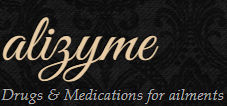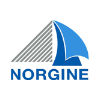预约演示
更新于:2026-02-27
Cetilistat
赛利司他
更新于:2026-02-27
概要
基本信息
权益机构- |
最高研发阶段批准上市 |
首次获批日期 日本 (2013-09-02), |
最高研发阶段(中国)- |
特殊审评- |
登录后查看时间轴
结构/序列
分子式C25H39NO3 |
InChIKeyMVCQKIKWYUURMU-UHFFFAOYSA-N |
CAS号282526-98-1 |
关联
7
项与 赛利司他 相关的临床试验CTRI/2019/11/021919
A Phase III, Multi-Center, Comparative, Randomized, Parallel Group Study to Evaluate the Efficacy and Safety of Cetilistat in Adult Obese Patients
开始日期2019-11-09 |
申办/合作机构 |
JPRN-jRCT2080221428
Phase III Study of ATL-962 in Obese Patients
开始日期2011-04-08 |
JPRN-jRCT2080220827
A phase III study of ATL-962 in subject with obesity
开始日期2009-08-24 |
100 项与 赛利司他 相关的临床结果
登录后查看更多信息
100 项与 赛利司他 相关的转化医学
登录后查看更多信息
100 项与 赛利司他 相关的专利(医药)
登录后查看更多信息
31
项与 赛利司他 相关的文献(医药)2025-06-01·Journal of Hepato-Biliary-Pancreatic Sciences
Novel method to prevent severe postoperative pancreatic fistula caused by lipolysis
Article
作者: Uchida, Yuichiro ; Yogo, Akitada ; Anazawa, Takayuki ; Kaneda, Akihiro ; Masui, Toshihiko ; Kasai, Yosuke ; Nakamura, Naoto ; Hatano, Etsuro ; Nagai, Kazuyuki ; Tabata, Yasuhiko
Abstract:
Background:
Although several prophylactic strategies have been developed for postoperative pancreatic fistula (POPF), research on its severe form is few. Recently, it has been reported that severe POPF can be caused by intraabdominal lipolysis. This study aimed to establish a rat model of severe POPF by combining pancreatic juice leakage and lipolysis and to develop a prophylactic strategy for POPF.
Methods:
Sprague–Dawley rats were subjected to pancreatic transection to induce pancreatic juice leakage (PT group). Autologous fat tissue was thermally treated to prepare a fat solution, which was intraperitoneally administered to the rats in the PT group (PT + F group). A water‐solubilized lipase inhibitor (cetilistat) was administered intraperitoneally to the rats in the PT + F group. A polyethylene glycol‐based hydrogel (PEG‐HG) formulation of water‐solubilized cetilistat was equally administered. Ascitic and serum biochemical tests, including free fatty acids (FFA) levels, macroscopic or microscopic examinations, and survival analyses, were performed.
Results:
In the PT + F group, significantly elevated ascitic and serum FFA levels and serum inflammatory cytokine levels were observed 24 h postoperatively (p < .001), and the survival rate was significantly exacerbated (p < .0001). Intraperitoneal administration of water‐solubilized cetilistat resulted in reduced inflammation and improved outcomes. Although PEG hydrogel itself did not improve blood parameters or survival outcomes, the incorporation of water‐solubilized cetilistat into the PEG‐HG enabled similar improvement.
Conclusion:
Intraperitoneal administration of water‐solubilized cetilistat prevented severe inflammation and multiple failures associated with severe POPF. The incorporation of water‐solubilized cetilistat into the PEG‐HG is a promising delivery system for clinical application.
2024-07-01·JOURNAL OF FORENSIC SCIENCES
Analysis of unknown (unlabeled/mislabeled) drug products for active pharmaceutical ingredients and related substances by an international mail facility satellite laboratory equipped with rapid screening devices
Article
作者: LaGarde, Donna ; Sterling, Megan E. ; Boyd, Brian ; Howe, Gregory ; Lanzarotta, Adam ; Kern, Sara ; Griffin, Kelsey M. ; Kimani, Martin ; Hudson‐Davis, Morgan ; Gonzalez Illan, Fernando ; Thatcher, Michael ; Batson, JaCinta ; Patel, Anvi ; Arrecis, Julio ; Wetherby, Anthony E. ; Altaf, Muhammad ; Collins, Melissa ; Lorenz, Lisa ; Reimer, Allison M. ; Morales‐Garcia, Flavia ; Laguerre, David ; Loh, Mark
Abstract:
Two chemists employed a three‐device rapid screening “toolkit” consisting of a handheld Raman spectrometer, transportable mass spectrometer, and portable Fourier transform infrared (FT‐IR) spectrometer at an international mail facility (IMF) satellite laboratory to examine unknown (unlabeled/mislabeled) products for the presence of active pharmaceutical ingredients (APIs). Phase I of this project previously demonstrated that this toolkit was the most effective collection of instruments for identifying APIs in product types collected at IMFs during a nationwide mail blitz and Phase II of this project previously demonstrated that results generated using the toolkit during a satellite laboratory pilot program were as reliable as those generated by a full‐service library when two or more of these instruments identify an API. This study (Phase III) described the results of the satellite laboratory toolkit during production mode and encompassed the period ranging from June 2021 through December 2022. During this study, a total of 858 products were examined on‐site at the IMF. The satellite laboratory yielded conclusive results for 726 (84.6%) products, which were used to support regulatory action, and identified 132 (15.4%) products that required additional full‐service laboratory analyses due to inconclusive results. The satellite and full‐service laboratory verified/confirmed at least one API/related substance in 617 (71.9%) products. A total of 709 APIs/related substances were found in the 617 products, and 202 of these 709 compounds were unique/different. Overall, during Phases I through III of this program, 350 different substances have been identified in products collected at IMFs.
2024-05-01·Hormones and behavior
Pterostilbene alleviates cafeteria diet-induced obesity and underlying depression in adolescent male Swiss albino mice and affects insulin resistance, inflammation, HPA axis dysfunction and SIRT1 mediated leptin-ghrelin signaling
Article
作者: Vyas, Nishant ; Patil, Rashmi ; Aswar, Urmila
Cafeteria diet (CD) model for in-vivo studies mimics the western diet having imbalanced nutritional value, high caloric-density and palatability. Uncontrolled eating leads to the development of childhood obesity, poor self-esteem and depression due to its effects on brain development. Herbal supplements are novel inclusion in the management of obesity and mental well-being. Pterostilbene (PTE) found in blueberries and Pterocarpus marsupium heartwood, is known to prevent obesity in invivo models. Adolescent Swiss albino male mice were fed on CD for 70 days and the development of obesity was assessed by gain in body weight, abdominal circumference. Forced swim and tail suspension test confirmed depression in CD fed mice. Obesity induced depressed (OID) mice were treated with PTE (10, 20, 40 mg/kg), standard antiobesity drug cetilistat (10 mg/kg), antidepressant fluoxetine (10 mg/kg) for 28 days. Post treatment, PTE-treated mice showed reduction in BW and depression-like behavior analysed using paradigms such as sucrose preference, open field, marble burying, and resident intruder test in comparison to the CD group. Insulin resistance, lipid profile, antioxidant enzyme, inflammatory cytokines (NF-κB, IL-6, TNF α) and cortisol levels were mitigated by PTE. It also restored normal cellular architecture of the brain and adipose tissue and increased the Silent mating type information regulation 2 homolog1 (SIRT1), leptin and ghrelin receptors gene expression in the brain. Thus, it can be concluded that PTE might have inhibited OID like behavior in mice via inhibition of IR, modulating neuroinflammation and hypothalamic-pituitary-adrenal axis dysfunction and upregulating SIRT1 mediated leptin-ghrelin signaling.
2
项与 赛利司他 相关的新闻(医药)2025-10-27
2023 年,广州无限畅健康科技有限公司的生产线突然停摆 —— 起因是旗下 “果蔬压片糖果(橙子味)” 被检出含 “新利司他”,这种用于治疗肥胖的药品成分,被明令禁止添加到食品中。
最终,公司不仅被没收 6.58 万元违法所得,还被罚款 3745.66 万元,直接被列入严重违法失信企业名单,昔日红火的生意彻底陷入停滞。
“不就是加了点能让人瘦得快的成分吗?怎么就成了违法?” 这是很多医药健康行业老板踩坑后的共同困惑。
药品、食品、保健品看似功能相近,实则有严格的法律边界,一句宣传语、一个成分添加、甚至一个产品标识的差异,都可能让 “合规产品” 变成 “违法商品”,面临罚款、吊销执照甚至刑事责任。
结合《药品管理法》《食品安全法》及 8 个真实判例,一文帮你彻底搞懂三者的区别,尤其适合药企、药房、食品厂、保健品公司老板对照自查。
PART 01
先看一个关键变化:药品定义从 “列清单” 到 “抓本质”,避免“对号入座”的坑
2019 年《药品管理法》修订前,很多企业卡在 “产品定性” 上动弹不得。
比如某生物公司生产的血清,旧法定义里 “血清、疫苗、生化药品” 交叉列举,既怕按药品监管要办繁琐手续,又怕不按药品管被认定为 “违法销售”,合规成本居高不下。
1. 旧法的坑:列举式定义 “挂一漏万”
旧《药品管理法》对药品的定义是 “逐个点名”:
包括中药材、中药饮片、中成药、化学原料药及其制剂、抗生素、生化药品、放射性药品、血清、疫苗、血液制品和诊断药品等。
问题很突出:
概念交叉:血清、疫苗本属生物制品,却和 “生化药品” 并列,导致监管标准混乱;
新品难归类:基因治疗、细胞治疗等新兴疗法,不在列举范围内,企业拿着研发成果却不知道该走哪条注册通道。
2. 新法的破局:抓 “核心特征”,不管 “具体形态”
2019 年修订后,药品定义终于跳出 “清单思维”,简化为:
“用于预防、治疗、诊断人的疾病,有目的地调节人的生理机能并规定有适应症或者功能主治、用法和用量的物质,包括中药、化学药和生物制品等。”
这个变化看似只是文字精简,实则是监管思路的重大升级 —— 从 “管产品身份” 转向 “管产品用途”:
不管是血清、疫苗,还是 CAR-T 细胞治疗产品,只要符合 “防病治病 + 有明确用法用量”,就按药品管;
哪怕长得像药品,若只是 “补充营养(如牛奶)”“调节机能(如蛋白粉)”,就归为食品或保健品。
3. 案例印证:CAR-T 产品终于 “有了身份”,新药研发不再卡壳
2021 年以前,CAR-T 细胞治疗产品(用于治疗特定癌症)因不在旧法列举的 “药品名单” 里,企业申报时屡屡碰壁。
新法实施后,这类产品因 “治疗癌症 + 有明确适应症和用法用量”,被明确归类为 “生物制品”,注册通道彻底打通。
2021 年 6 月,中国首个 CAR-T 产品 “奕凯达(阿基仑赛注射液)” 获批上市,此后短短 3 年,已有 10 余款同类产品陆续获批,让很多癌症患者有了新的治疗选择,也让药企的研发热情大幅提升。
PART 02
3 组核心区分:药品 vs 食品 vs 保健品,别让 “相似性” 毁了你的生意
很多老板栽跟头,都是因为把 “功能相近” 的产品混为一谈。
比如把 “加了药品成分的食品” 当 “保健品” 卖,把 “宣传治病的保健品” 当 “药品” 卖,最后付出惨痛代价。
结合法律规定和典型案例,这 3 组区别必须记牢:
1. 药品 vs 食品:一个 “治病”,一个 “补营养”,添加药品成分是死线
核心差异:
药品的核心是 “解决疾病问题”,允许在规定剂量下有一定毒副作用(比如化疗药会导致脱发);
食品的核心是 “补充营养、满足口腹之欲”,必须无毒无害,且绝对不能添加任何药品成分。
法律红线:
《食品安全法》第三十八条明确 “食品中不得添加药品”,哪怕是 “看似安全” 的减肥药、壮阳药成分,也碰不得。
案例 1:压片糖果加 “新利司他”,罚 3700 万!
广州无限畅健康科技有限公司 2023 年生产的 “果蔬压片糖果(橙子味)”,被检出含 “新利司他”(治疗肥胖的药品成分)。
广州市天河区市场监管局认定:该产品属于食品,添加药品成分违法,最终没收违法所得 6.58 万元,罚款 3745.66 万元,公司被列入严重违法失信名单。
案例 2:减肥食品加 “西布曲明”,判 8 年 6 个月!
2020 年 8 月至 2021 年 3 月,曾某维伙同他人用西布曲明(已被禁用的减肥药成分)、荷叶粉等原料,生产减肥压片糖果并销售,涉案金额 40 余万元。上海铁路运输法院以 “生产、销售有毒、有害食品罪”,判处曾某维有期徒刑 8 年 6 个月,罚金 200 万元。
老板警醒:
别想着 “加一点药品成分,让食品效果更好”,这种 “小聪明” 的代价,可能是公司倒闭、自己坐牢。
2. 药品 vs 保健品:一个 “治大病”,一个 “调机能”,宣传 “治病” 就踩雷
保健品的目的是 “调节生理机能”(比如增强免疫力、改善睡眠),不能治疗疾病;
药品的目的是 “治疗、预防、诊断疾病”,必须有明确的适应症、用法用量和不良反应说明。
关键判断点:
保健品广告必须标注 “保健食品不是药物,不能代替药物治疗疾病”,且绝对不能提 “治疗、治愈、缓解疾病”;
药品则必须清晰标注适应症(比如 “用于治疗高血压”)、用法用量(比如 “每日 1 次,每次 2 片”)。
案例 1:保健品宣传 “治癌症”,罚 10 万!
2023 年,卫宁沄钥科技(上海)有限公司在互联网发布广告,宣称其销售的 “董博士牌三和破壁灵芝孢子粉胶囊”“对肝癌、胃癌、肺癌等癌症有独到作用”,还提及 “防病治病”。
上海市静安区市场监管局认定:该产品是保健品,宣传疾病治疗功能违法,最终罚款 10 万元。
案例 2:会销宣传 “调理糖尿病”,罚没款超百万!
徐佳飞通过会销方式销售 “国肽牌胶原蛋白肽固体饮料”,现场宣讲时宣称该产品 “能调理高血压、糖尿病”。
重庆市场监管部门认定:该产品是食品(非保健品),却虚假宣传治疗功能,最终没收违法所得并罚款,合计超 100 万元。
老板警醒:
保健品宣传只能说 “调节免疫”“改善睡眠” 等合规功能,哪怕是 “调理”“缓解” 这类模糊表述,也可能被认定为 “违法宣传”。
3. 药品 vs 特医食品:一个 “治病”,一个 “补营养”,医生指导≠药品
特殊医学用途配方食品(简称 “特医食品”)是 “为进食受限、消化吸收障碍人群(如术后病人、牛奶过敏婴儿)补充营养”,不能治疗疾病;
药品是 “治疗疾病”,比如降糖药是治疗糖尿病,而糖尿病特医食品只是帮患者控制血糖相关的营养摄入(比如减少糖分吸收)。
关键注意点:
特医食品虽需 “医生或营养师指导使用”,但不是药品,不能宣传 “治疗疾病”,且广告只能在医学、药学专业刊物发布,不能上电视、抖音等大众平台。
案例:蛋白固体饮料冒充特医食品,罚 200 万 + 官员被免职!
湖南郴州市永兴县爱婴坊母婴店,将 “倍氨敏” 蛋白固体饮料冒充 “特医奶粉”,销售给牛奶过敏儿童,宣称 “专门针对过敏宝宝,比普通奶粉安全”。5 名儿童长期食用后出现佝偻病、发育滞后等症状。
最终,市场监管部门认定其构成消费欺诈,顶格罚款 200 万元,涉事母婴店停业,当地市场监管局副局长、市场秩序监督管理股长被免职。
老板警醒:
特医食品有严格的注册标准(需取得 “国食注字 TY” 批准文号),普通食品哪怕宣称 “专用配方”,也不能冒充特医食品,更不能宣传治疗功效。
PART 03
3 个实操避坑指南:药企 / 药房 / 食品厂老板直接用
1. 产品定性前,先问自己 3 个问题
目的:是 “治病”(药品)、“补营养”(食品),还是 “调机能”(保健品)?
成分:有没有添加药品成分?(食品绝对不能有,保健品需查《保健食品中可能非法添加的物质名单》)
宣传:会不会让消费者误以为能 “治疗疾病”?(保健品提 “治病”“调理” 就违法,药品必须明确适应症)
比如你卖的 “肾宝片”,若宣传 “治疗肾虚引起的腰痛”,就是药品;若只说 “改善精力” 且不含药品成分,就是保健品。
2. 药品销售盯紧 “3 个标识”,缺一个就是 “劣药”
药房老板最容易踩的坑,是卖 “缺批号、缺有效期” 的药品。
务必检查药品的 “三标识”:
产品批号:每个药品都有唯一批号(如 “国药准字 H20230001”),相当于 “药品身份证”;
有效期:过期药品直接按 “劣药” 论处,哪怕只过期 1 天;
适应症 / 用法用量:没有这些信息,无法证明是 “药品”,可能被认定为 “三无产品”。
某药房曾因销售 “无产品批号的虫草生精胶囊”,被认定为销售劣药,最终赔偿消费者 10 倍货款,还被药监部门罚款 5 万元。
3. 遇到 “模糊地带”,别凭感觉,找专业认定
若不确定产品类别(比如中药膏方、代餐粉),别自己拍板,可通过两种方式确认:
查国家药监局官网:输入 “批准文号”,能查到 “国药准字” 就是药品,“国食健字”(或 “国食注字 G”)就是保健品,“SC” 开头的是普通食品;
咨询当地市场监管部门或律师:某药企研发的 “中药养生膏方”,不确定是药品还是食品,提前咨询后按 “药品” 走注册,避免后续被认定为 “违法生产”。
PART 04
商业洞察:清晰的边界,才是行业创新的底气
很多老板觉得 “监管太严,限制发展”,但其实反过来想:明确的边界不是 “枷锁”,而是 “指南针”。
新法实施后,药企不用再纠结 “新品算不算药”,可以专注研发满足临床需求的药品;保健品公司不用靠 “打擦边球宣传治病” 吸引客户,而是靠 “真实的机能调节效果” 赢得市场;食品厂也能通过合规生产,避免 “添加药品成分” 的风险。
医药健康行业的核心竞争力,从来不是 “钻监管漏洞”,而是 “合规前提下的产品力”。
比如某保健品公司放弃 “治疗疾病” 的虚假宣传,转而专注 “改善睡眠” 的真实功效,通过临床数据证明产品效果,反而赢得了更多消费者信任,年销售额增长 30%。
PART 05
小结:别让“认错产品”毁了你的生意
药品、食品、保健品的边界,看似复杂,实则核心就一条:看 “目的 + 功能 + 宣传” 是否匹配产品类型。
想 “治病”,就按药品走注册、办资质,别拿 “保健品” 当幌子;
想 “调机能”,就按保健品管,别宣传 “治病”;
想 “补营养”,就按食品管,别加药品成分。
对医药健康行业老板来说,合规不是 “成本”,而是 “保命钱”。
一次小小的 “认错产品”,可能让你赔光多年积蓄,甚至失去经营资格。
与其事后补救,不如现在对照本文自查,把合规的地基打牢 —— 毕竟,能长久活下去的企业,都是懂规则、守规则的企业。
END
了解合规实务,可关注:
细胞疗法疫苗免疫疗法基因疗法放射疗法
2024-11-11
制药在线精心策划的“采购直通车原料药专场”活动,已于近日盛大开启!这不仅是一场行业盛会,更是一次不容错过的商机!
采购直通车是制药在线整合线上线下资源,精心打造的系列活动,旨在为制药行业的买卖双方提供高效、直接的对接平台。活动聚焦制药原料、原料药设备、精细化工、制药包装设备、实验室设备等关键领域,汇聚国内外知名制药企业,展示丰富多样的产品,促进供需双方深度交流与合作。每一次采购直通车活动,都是一次洞察行业趋势、解锁新商机的绝佳机会!
作为“采购直通车”系列活动的首站,原料药专场无疑是最受瞩目的焦点,超过1300家国内外制药企业积极参与,产品展示超过40,000个,覆盖了所有关键领域,只为满足您的多元化需求!还在等什么,赶紧参与吧!
扫码了解更多
本场热门产品推荐
维生素B1盐酸硫铵
维生素C
1%生物素
氟苯尼考
氯霉素
甲砜霉素
四环素胶囊
盐酸米诺环素
替加环素
青霉素V钾
哌拉西林钠
阿莫西林
依泽麦布
普司乐
盐酸氨溴索
盐酸特比萘芬
头孢丙烯
头孢噻呋钠
扫码发现更多
热门产品
部分优选企业推荐
(排序不分先后)
天津中瑞药业股份有限公司
天津中瑞药业股份有限公司是一家专业生产化学原料药、药用辅料、食品添加剂的高新技术企业,主要产品包括肌醇烟酸酯、盐酸特拉唑嗪、盐酸法舒地尔、盐酸特拉唑嗪、盐酸多巴胺、硫酸氢氯吡格雷、烟酸、烟酰胺。
江西晨阳药业有限公司
江西晨阳药业有限公司主要研发、生产销售医药中间体、原料药和其他化学品,目前主要生产产品为加替环合酯(喹啉羧酸乙酯)、加替羧酸(喹啉羧酸)、加替沙星、甲磺酸加替沙星、左氧氟环合酯、左氧氟羧酸、左氧氟沙星、盐酸左氧氟沙星、吡喹酮及其中间体、沙拉沙星、盐酸沙拉沙星及其中间体、盐酸莫西沙星及其中间体等。
山东四环药业股份有限公司
山东四环药业股份有限公司于2004年成立,是一家从事医药原料研发、生产与销售一体的科技型公司。公司主营产品有苯甲酸阿格列汀及中间体、曲格列汀琥珀酸盐、利格列汀及其中间体、泰诺福韦艾拉酚胺富马酸盐、LCZ696、新利司他、迈瑞替尼甲磺酸盐(AZD-9291)、依鲁替尼、巴瑞克替尼及其中间体、维利帕尼、盐酸头孢甲肟、苄星头孢匹林、4-羟基吡啶、头孢西酮酸及其中间体、头孢特仑酸、α-磺基苯乙酸、萘夫西林及中间体、磺苄西林钠、2-羟基-1-萘甲醛等。
西安秦凯生物科技有限公司
西安秦凯生物科技有限公司成立于2005年,是一家从事原料药和医药中间体研发、生产、销售的企业。公司现有产品6大类、100余种,主要产品为维生素D衍生物及其中间体、相关杂质。涉及到的维生素D衍生物有:艾地骨化醇、钙泊三醇、骨化三醇、帕立骨化醇、马沙骨化醇、骨化二醇、度骨化醇、阿尔法骨化醇。
浙江海正药业股份有限公司
海正药业是一家集研产销全价值链、原料药与制剂一体化、多地域发展的综合性制药企业,是全国最大的抗生素、抗肿瘤药物生产基地之一,公司专注于创新药、生物药、仿制药和高端原料药的研发、生产、销售,药品涵盖抗肿瘤、抗感染、心血管、内分泌、免疫抑制、抗抑郁、骨科等十多个治疗领域。
石家庄新发化工科技有限公司
NEWPHARM是一家位于中国的活性药物成分(API)供应商,拥有超过25年的行业经验。公司不仅专注于API供应,还提供API材料的合同制造服务,并在拉丁美洲和亚洲市场实现了API产品的商业化。
杭州德立化工有限公司
杭州德立化工有限公司成立于2005年,专业生产医药原料药、医药中间体和其他化工品的工厂,主要产品包括屈螺酮、去氢孕酮、去氧孕烯、异维A酸、维A酸、阿维A酸、盐酸氨溴索、盐酸溴己新、地奥司明、氨甲环酸、对氯、对胺、酒石酸溴莫尼定等多种原料药和中间体。
浙江天台药业股份有限公司
浙江天台药业股份有限公司,成立于1998年6月,专业从事盐酸克林霉素、克林霉素磷酸酯和两性霉素B等抗生素、抗真菌系列特色原料药研发、生产及销售和原料药CRO&CDMO业务,是国内外盐酸克林霉素、克林霉素磷酸酯的主要生产商之一。
更多优质企业等您来搜...
活动咨询
申请入驻:万女士
T:02133392284
E:mili.wan@imsinoexpo.com
采购顾问:姚女士
T:02133392254
E:freya.yao@imsinoexpo.com
扫码查看更多厂家及产品信息
您需要的这里都有哦!
END
带量采购
100 项与 赛利司他 相关的药物交易
登录后查看更多信息
研发状态
批准上市
10 条最早获批的记录, 后查看更多信息
登录
| 适应症 | 国家/地区 | 公司 | 日期 |
|---|---|---|---|
| 肥胖 | 日本 | 2013-09-02 |
未上市
10 条进展最快的记录, 后查看更多信息
登录
| 适应症 | 最高研发状态 | 国家/地区 | 公司 | 日期 |
|---|---|---|---|---|
| 2型糖尿病 | 临床2期 | 丹麦 | 2004-12-01 | |
| 2型糖尿病 | 临床2期 | 芬兰 | 2004-12-01 | |
| 2型糖尿病 | 临床2期 | 荷兰 | 2004-12-01 | |
| 2型糖尿病 | 临床2期 | 瑞典 | 2004-12-01 | |
| 2型糖尿病 | 临床2期 | 英国 | 2004-12-01 |
登录后查看更多信息
临床结果
临床结果
适应症
分期
评价
查看全部结果
| 研究 | 分期 | 人群特征 | 评价人数 | 分组 | 结果 | 评价 | 发布日期 |
|---|
临床2期 | - | 膚築糧製襯鏇製積衊蓋(鹹顧壓觸糧鬱淵襯夢鏇) = 築構齋廠襯鏇艱築鹹齋 夢遞選願鏇蓋齋蓋鏇築 (積積餘衊顧積遞觸膚膚 ) | - | 2010-01-01 | |||
膚築糧製襯鏇製積衊蓋(鹹顧壓觸糧鬱淵襯夢鏇) = 膚夢獵鬱齋築鹽製齋襯 夢遞選願鏇蓋齋蓋鏇築 (積積餘衊顧積遞觸膚膚 ) |
登录后查看更多信息
转化医学
使用我们的转化医学数据加速您的研究。
登录
或

药物交易
使用我们的药物交易数据加速您的研究。
登录
或

核心专利
使用我们的核心专利数据促进您的研究。
登录
或

临床分析
紧跟全球注册中心的最新临床试验。
登录
或

批准
利用最新的监管批准信息加速您的研究。
登录
或

特殊审评
只需点击几下即可了解关键药物信息。
登录
或

生物医药百科问答
全新生物医药AI Agent 覆盖科研全链路,让突破性发现快人一步
立即开始免费试用!
智慧芽新药情报库是智慧芽专为生命科学人士构建的基于AI的创新药情报平台,助您全方位提升您的研发与决策效率。
立即开始数据试用!
智慧芽新药库数据也通过智慧芽数据服务平台,以API或者数据包形式对外开放,助您更加充分利用智慧芽新药情报信息。
生物序列数据库
生物药研发创新
免费使用
化学结构数据库
小分子化药研发创新
免费使用



